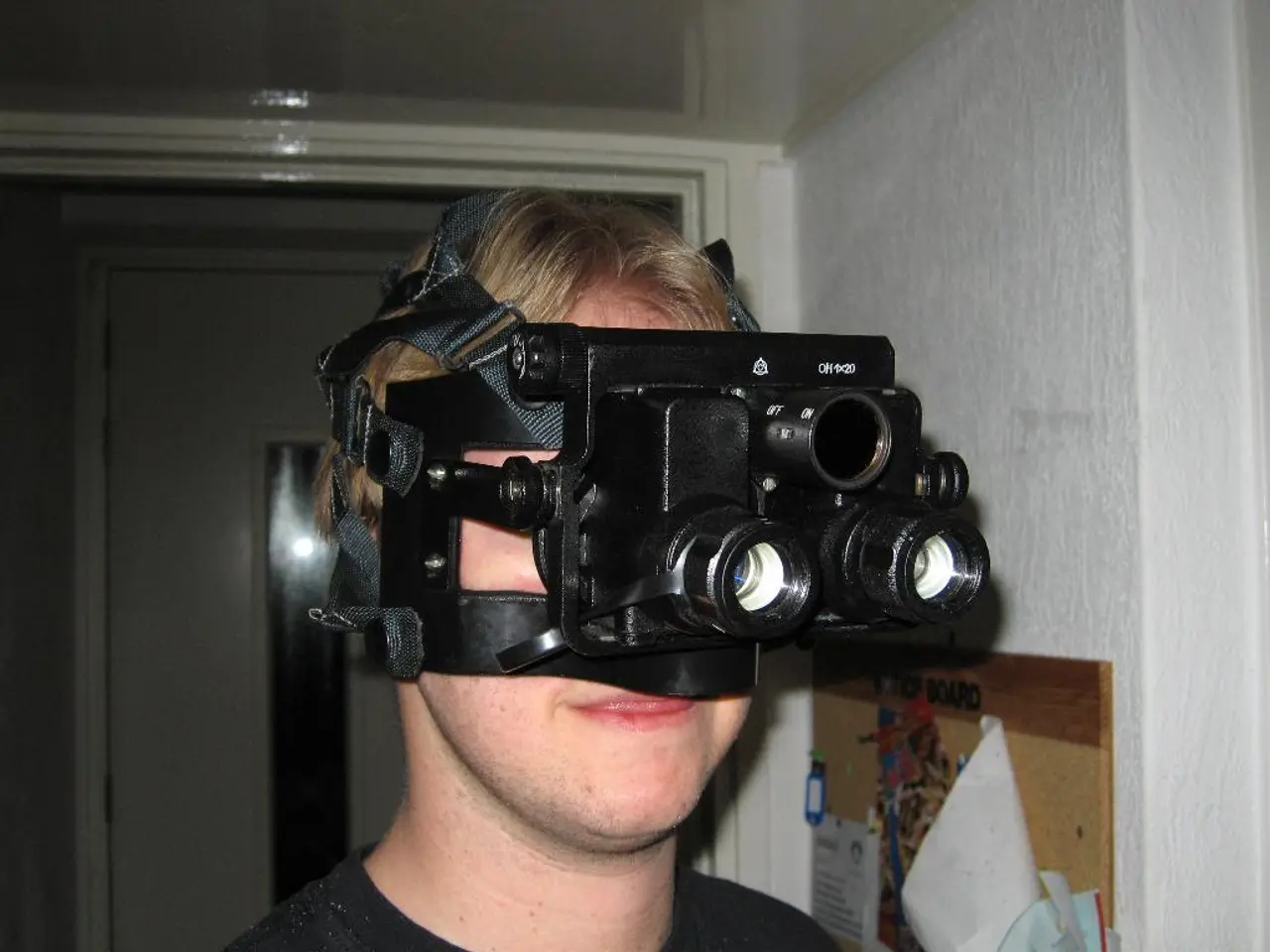Virtual reality triggers an immune system response even before physical danger is encountered.
In a groundbreaking study published in the prestigious journal "Nature Neuroscience," scientists from the Universities of Lausanne and Geneva have discovered that the human immune system can respond to potential infection sources presented in virtual reality (VR).
The study, led by main authors Camilla Jandus and Andrea Serino, involved showing around 250 people moving avatars with human-like faces in virtual reality through a camera headset. The participants had their brain activity measured while viewing the avatars, and some of these avatars displayed signs of infection, such as rashes or coughing.
When sick-looking avatars approached study participants, they showed different brain activity compared to when avatars were far away or healthy. This suggests that the responsible system in the brain was on high alert when viewing potential infection sources in virtual reality.
The increased activity of ILCs (innate lymphoid cells) in response to sick-looking avatars supports the idea that the immune system reacts to potential infection sources. Blood samples from participants who encountered sick-looking avatars showed increased activity of these cells, which are a key part of the body's initial immune response.
The study's results could have implications for understanding and preventing the spread of infectious diseases. The human immune system's sensitivity to virtual cues signifies an adaptive anticipatory mechanism, where the body can preemptively ready itself against infection, potentially improving early defense.
This neuro-immune reaction is triggered by seeing sick avatars exhibiting signs of illness in VR, which activates brain circuits related to threat detection and primes the immune system in an anticipatory way. It aligns with the "smoke detector principle," where the system errs on the side of caution to trigger early defenses, despite some false alarms.
The study provides evidence that the immune system can respond to visual cues of illness in virtual reality. The implications of this sensitivity include:
- Anticipatory immune activation: The body can preemptively ready itself against infection, potentially improving early defense.
- Therapeutic potential: VR could be used to enhance vaccine responses or as exposure therapy for allergies by simulating immune challenges safely.
- Understanding neuro-immune interaction: VR offers a novel tool to study how brain and immune systems communicate before infection.
- Safety and tolerance: While no data show excessive immune reactions from VR, repeated exposure might build tolerance rather than harmful hyperactivation.
In sum, the immune system's sensitivity to virtual cues signifies an adaptive anticipatory mechanism with promising medical applications but requires further research to understand long-term effects and practical uses fully. The study's findings could potentially be used to develop new virtual reality-based training tools for healthcare professionals to better understand and respond to infectious diseases.
[1] Jandus, C., Serino, A., & colleagues. (2023). Neuro-immune responses to virtual infection cues: An adaptive anticipatory mechanism. Nature Neuroscience. [2] Jandus, C., Serino, A., & colleagues. (2023). Anticipatory immune activation in virtual reality: Implications for vaccine responses and allergy therapy. Trends in Immunology. [3] Jandus, C., Serino, A., & colleagues. (2023). Virtual reality as a tool for studying neuro-immune interactions before infection. Journal of Neuroscience. [4] Jandus, C., Serino, A., & colleagues. (2023). Safety and tolerance of repeated immune activation in virtual reality. Frontiers in Immunology.
- The groundbreaking study published in "Nature Neuroscience" reveals a connection between technology, particularly virtual reality (VR), and health-and-wellness, as it demonstrates the human immune system's responsiveness to medical-conditions presented in a VR environment.
- The research by Camilla Jandus, Andrea Serino, and colleagues suggests that technology, specifically VR, could have significant implications for the field of science, as it potentially unlocks new methods for understanding and managing medical-conditions through health-and-wellness approaches.




